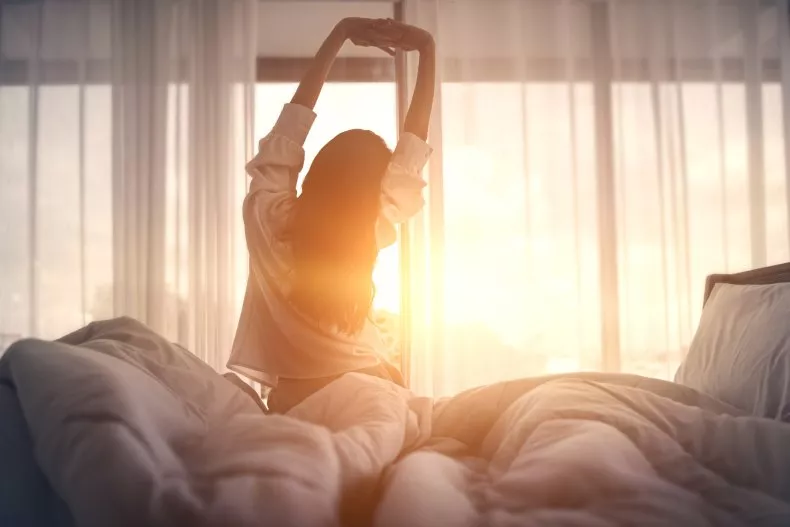A new study published in the journal JAMA Network Open suggests that exposure to bright light may be a solution for getting a good night’s sleep. The researchers analyzed data from over 6,600 people, measuring time spent in bright light, depression symptoms, sleep regularity, and their levels of vitamin D. They found that people with more exposure to bright light had fewer symptoms of depression and also had a more regular sleep schedule. Increased vitamin D levels were associated with better sleep, but not with lower depression.
Sleep and depression are closely linked in several ways, with each condition potentially influencing the other. Sleep and mood regulation involve similar neurotransmitters, such as serotonin and norepinephrine, and imbalances in these neurotransmitters can contribute to both sleep disturbances and depression. Depression can disrupt the body’s internal clock (circadian rhythms), leading to irregular sleep patterns, and vice versa.
In this study, greater sleep regularity partly explained the association between greater bright light exposure and lower depression symptoms. More vitamin D was associated with more regular sleep timing but not depression. The findings align with prior population-based research, supporting reduced depression among those with greater daytime light exposure. Bright light therapy can be effective at improving numerous mood outcomes, possibly through effects on sleep and the circadian system.
However, the cross-sectional analysis cannot prove light’s impacts on sleep or depression, but suggests that more exposure to light could improve mood. The researchers suggest further prospective analyses to test the causality of these factors and consider the role of sleep regularity in future studies of bright light therapy.
